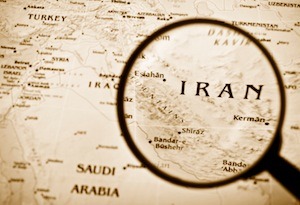Threats to the United States and its citizens from the Islamic Republic of Iran and its terror proxies have reached a fever pitch, with no clear U.S. policy for how to stop it. Tehran is perched on the nuclear threshold, effectively capable of breaking out at a moment’s notice. Simultaneously, Iran and its proxies have spent 11 months waging a regional war with global repercussions—targeting not just Israel but commercial shipping in the Red Sea and U.S. troops in Iraq, Syria, and Jordan. Iran even attempted to hire assassins to kill a former U.S. president and other former senior U.S. officials on American soil. Taming Iranian nuclear advances and ever-widening aggression will be an urgent priority for the next administration and Congress, with implications for all other U.S. national security interests. A rampaging Iran could fuel the war in Ukraine with more arms shipments, spark a nuclear arms race in the Middle East, raise energy and shipping costs, and distract U.S. attention and resources from competition with China, all in addition to wreaking more regional bloodshed and havoc.
It is vital that the United States have a comprehensive strategy for blunting Iranian transgressions in all their forms. Congress can help develop and bolster the credibility of such a strategy by approving conditional Authorizations for the Use of Military Force (AUMFs) to prevent a nuclear Iran and deter its further attacks.
The credible threat of military force has been the only tool to effectively and repeatedly convince Iran to back down. Israel’s 2012 nuclear redline, President Donald Trump’s 2020 strike on Quds Force commander Major General Qassem Soleimani after Iranian proxies killed an American, and President Joe Biden’s August 2024 regional force build up in the face of a threatened direct Iranian attack on Israel are all examples of the United States and its partners threatening to punish Iran if it continued its malign behavior—and Iran changing course rather than risk confrontation. Similarly, by now signaling a credible commitment to hold Iran responsible for continued aggression—whether advancing its nuclear program or attacking U.S. troops, citizens, and interests with its proxies—the United States can increase the credibility of consequences for its worst transgressions. A cost-free yet meaningful means of convincing Tehran that it will face consequences for its aggression is for Congress to pass AUMFs against Iran: one explicitly authorizing military strikes against Iran’s nuclear program, and the other authorizing force against the designated foreign terrorist organizations backed by Iran, including Hamas, Hezbollah, and possibly the Islamic Revolutionary Guard Corps (IRGC).
Compared to other alternatives, this is an immediate option for bolstering deterrence, reining in Iranian escalation, and slowing Iranian nuclear advances. While effective, maintaining two carrier strike groups in the Middle East for the foreseeable future is both costly and untenable given competing requirements in the Indo-Pacific. Increased sanctions enforcement would take time to bite, and Iran has repeatedly rebuffed American diplomatic overtures when it has perceived there would be no consequences for its intransigence. Meanwhile, congressional passage of AUMFs against Iran would send a clear, unmistakable, and prompt signal to Tehran, without requiring further immediate U.S. action. Nor would an AUMF make U.S. use of force more likely than it currently is. Both Presidents Trump and Biden have struck at Iran-linked targets citing their Article II constitutional authorities without an AUMF. But by giving the president approval to use force, Congress would communicate to Tehran the determination of all branches of power and both political parties to hold it accountable. Contrary to arguments that the only alternative to diplomacy is war, the threat of force against Iran is the best means for avoiding the use of force—both by the United States and Iran.
Taking up an AUMF would have the further salutary effect of restoring the Congress’ constitutional role in national security matters. Members have in recent years repeatedly sought to reclaim their war powers by seeking to rescind existing AUMFs. On March 29, 2023, the Senate voted to repeal the 2002 and 1991 Iraq AUMFs. The Republican-led House of Representatives has yet to consider similar legislation during this Congress but, under Democratic leadership, previously voted to repeal the 2001 AUMF against Al Qaeda passed in the wake of 9/11. Yet as threats around the world rise, Congress cannot claim to be fulfilling its constitutional national defense responsibilities if it only rescinds AUMFs yet shirks away from proactively providing the president with clear, legal authorities for the U.S. military to respond to urgent dangers.
While the president already has authority under Article II to act against the twin threats of Iran’s nuclear program and proxy networks, the president will act with maximum authority with Congress’ affirmative blessing. Specifically, we recommend that:
- Congress does not repeal the 2001 or 2002 AUMFs unless they are replaced by new measures that strengthen the president’s ability to protect U.S. forces and interests in the Middle East.
- Congress pass a new, tailored, and conditions-based AUMF for the elimination of Iran’s nuclear program.
- Conditions that trigger the AUMF could include determination from the intelligence community that Iran is pursuing a nuclear breakout of enrichment and/or weaponization activity.
- Congress pass a new AUMF or an addition to the 2001 or 2002 AUMFs that specifically authorizes military strikes against Hamas, Hezbollah, the Houthis, other Iranian proxies, and Iranian forces involved in funding, organizing, or equipping terrorist groups.
Click here to read the analysis.

